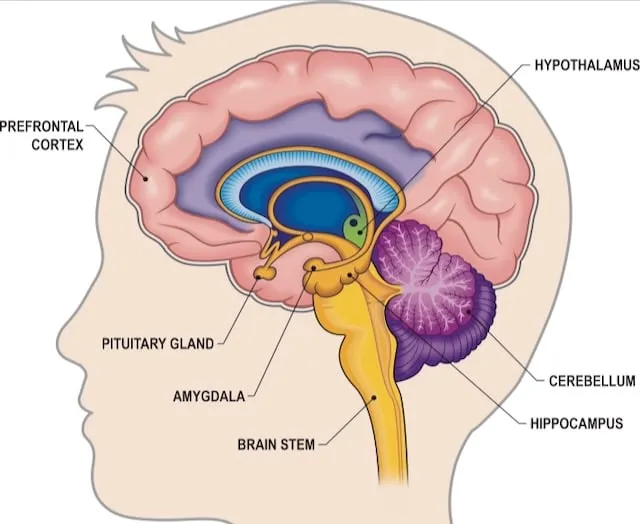Making Sense of Human Being Theory or Affect Theory
Do you wonder where emotions and feelings originate? Do you want to remain calm during difficult situations? Affect Theory, also called Human Being Theory by Tomkins, is the best way to understand how human beings operate. Through Affect Theory, we understand how affects, feelings, and emotions are the core of our motivational system.
Affect Theory helps you understand your bodily sensations. Next, you can look around you and see how others are engaging with their environment. You can look at people's faces and use the mirror neurons in your brain to understand what another person is feeling. As a result, you know what to do and your stress level is reduced.
Are you ready to leave trauma and anxiety behind as you embrace Affect Theory?
Understanding the Brain on Trauma
Our brain changes structure through social relationships where we learn to predict, anticipate, and manage life. Early childhood experiences play a huge role in developing our physical, social, and emotional well-being. Persistent trauma causes major problems especially when the trauma is not resolved or understood.
Trauma and anxiety can inhibit the growth of the brain, especially for babies and young children. In the first 6 to 7 years, we unconsciously download rules and regulations from other people to manage our lives as children. We spend the rest of our lives shedding these rules and regulations to release any early trauma and live anxiety free.
Are you ready to learn some simple interventions to release trauma and anxiety?

Harnessing Your Awareness
Our childhood brain integrates all of its parts through a calm and supportive family environment. Abusive childhoods mean children end up with primitive brains where the rational and emotional brain do not integrate. As a result, the emotional or primitive brain stays in control and the rational brain does not develop as it should.
Luckily, there are ways to integrate the brain even if you lived through a difficult and traumatic childhood. Through insight, reflection, and empathy, we activate our brain's ability to integrate all of its parts. By using focused attention to understand the present moment and our experiences, we can foster parts of our brain to integrate and function.
Are you ready to explore the Nine Affects?
The Nine Affects
-
Positive Affect: Interest - Excitement allows us to recognize what is important within our environment. Plus, we need this affect to activate so we can learn.
-
Positive Affect: Enjoyment - Joy serves as the basis for early attachments with caregivers. This affect activates when negative affects lift bringing integration within relationships and a sense of pride.
-
Neutral Affect: Surprise - Startle serves as a reset for our lives since this is the most intense and fleeting affect without allowing us to feel anything. We get ready for the next thing when this affect activates.
-
Negative Affect: Distress - Anguish activates if an intense experience lasts too long. The distress affect in babies communicates a need to their caregiver. How a caregiver responds scripts us for future responses.
-
Negative Affect: Anger - Rage passes through healthy people easily. This affect makes bad things worse. Lots of distress can result in an angry person who needs to express their anger quickly and constantly.
-
Negative Affect: Fear - Terror is one of the most toxic affects and tells us we are not safe. We get no clues to the source of the fear when this affect activates. We just feel the discomfort. Our hair can stand on end.
-
Negative Affect: Shame - Humiliation, as the last affect to evolve, lets us know our happiness is at risk. This affect creates cognitive shock. Once activated, you withdraw, deny, attack yourself, or attack others. No fun!
-
Negative Affect: Disgust connects with the Hunger Drive as it protects the baby from eating contaminated food. It evolved into an affect. Whenever you get a stomachache explore what disgusts you in life.
-
Negative Affect: Dissmell, made up by Tomkins, also connects to the Hunger Drive and evolved into an affect. This affect lets us distance ourselves from others. It is the basis for prejudice & people say others stink.
Nurture vs Genetics
Do you believe heredity or the environment controls how we develop as individuals? Ultimately, the environment has more impact than genetics on how we evolve as people. Affect Theory helps us understand how the environment sends signals to our brain and body receptors to pattern and script our responses.
It is true our genes are imprinted at birth. However, our positive and negative experiences mean our genes express themselves and flourish or die. A positive, loving, and supportive family environment goes a long way to forming a healthy child. Abused children often spend their whole lives trying to recover from the stress of their family.
Can you see how Affect Theory allows you to control the way you respond to your environment?
Connecting the Mind, Brain and Body Connection
Knowing how to respond to stress, especially chronic stress, goes a long way in creating a system to find happiness. Stress creates fear-based biochemical changes in our body, which increases energy, hypervigilance, distrust of others, isolate from others, and irrational thoughts while it lessens our ability to feel pain and empathy for others.
Chronic family stress interferes with a child's visual memory. As a result, young children in abusive homes do not learn to read the meaning behind a person's face or non-verbal clues. It becomes difficult for children raised in a negative home environment to establish strong social relationships, the best way to heal from stress.
Can you see how understanding affects teaches a way to connect the mind, brain, and body?aff
